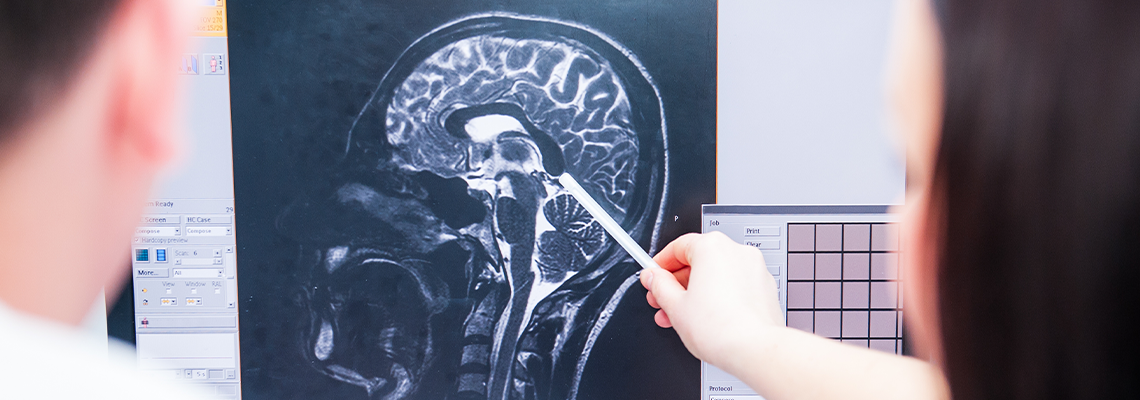Slip and Falls Are a Common Cause of Traumatic Brain Injury

On an average day, no one expects a simple trip to the mall or a walk around the house to lead to severe consequences. Yet, statistics reveal that slip and fall accidents are alarmingly prevalent and often result in traumatic brain injuries (TBIs). In fact, around 35% of brain injuries stem from falls, making it a leading cause of such devastating injuries.
But what’s causing this correlation? How can you prevent these accidents from happening to you and to people who visit your home? Get answers to these questions today.
Slip and Fall Accidents: Frequency and Locations
The fact that slip-and-falls are common causes of TBIs may stem from the commonality of slip-and-falls themselves. These accidents aren't isolated to just one type of location—they can occur virtually anywhere, both indoors and outdoors, in the home and out in public.
Outdoor incidents, influenced by factors like icy sidewalks, wet roads, or even the odd banana peel, are notably more common. However, the household is also a frequent setting for these accidents. In the home, the elderly and children are particularly susceptible to slip and fall accidents. The bathroom, especially bathtubs, is a hotspot for such incidents. Loose rugs near doorways, uneven surfaces on staircases, and watery kitchen floors can all contribute to the likelihood of a fall. Even seemingly innocuous elements like loose carpets or grease on indoor floors can increase the risk of an accident.
Public places, such as malls, workplaces, and worship areas, are not immune to slip and fall accidents either. Newly waxed or mopped floors without warning signs can pose a hazard, as can unattended spills. Stairs in public areas can be particularly dangerous, especially for children and the elderly. Restaurant and hotel kitchens present their own set of risks due to the presence of wet materials and powdery cooking products.
What all these places also have in common is the possibility for objects and surfaces that a person's head can strike as they fall, which can lead to TBIs.
Understanding Traumatic Brain Injuries
Traumatic brain injuries, or TBIs, are defined as any damage to the brain caused by an external physical force. They can be classified into mild, moderate, and severe categories depending on the severity of the injury and its effects.
Some of the common symptoms of a TBI include headaches, dizziness, nausea, and confusion. In more severe cases, victims may experience memory loss, difficulty concentrating or speaking, and even permanent brain damage.
TBIs can have long-lasting effects on a person's physical, emotional, and cognitive abilities. They can impact daily activities like work, school, and relationships. That's why there are personal injury and premise liability laws in place to protect individuals who have suffered a TBI from slip and fall accidents.
Note how essential it is to seek immediate medical attention after a slip and fall accident, even if you're not experiencing any evident symptoms. Often, brain injury symptoms may not manifest until days or weeks later. Prompt medical care can help diagnose and treat any potential TBI, minimize the long-term effects, and provide evidence for any necessary legal action.
Preventing Slip and Fall Accidents
While the frequency and potential severity of slip and fall accidents may be alarming, there are steps individuals can take to protect themselves. It's important to be proactive about safety, whether you're at home or out in public. Here are some key tips to help you avoid these types of accidents:
Stay Aware of Your Surroundings: Whether you're walking in a public place, along a road, or on a sidewalk, it's crucial to stay alert. Look out for obstacles or hazards that could cause you to trip or slip.
Inspect Public Flooring: Pay special attention to the condition of flooring in shopping centers. Wet areas and uneven surfaces can be particularly hazardous. If you notice any potentially dangerous areas, avoid them if possible and report them to the management.
Keep Home Flooring Smooth and Clutter-Free: At home, ensure your floors are smooth and free of clutter. This includes toys, loose rugs, or other items that could cause someone to trip.
Wipe Up Spills Immediately: If there's a spill or water on the floor, clean it up right away to prevent anyone from slipping.
Install Proper Handrails: Areas like bathtubs, kitchens, and stairs can be particularly dangerous, especially for children and the elderly. Installing proper handrails can provide necessary support and help prevent falls.
Keep Garage and Kitchen Flooring Dry: During the winter or rainy seasons, it's even more important to keep these areas dry to prevent slipping.
Assign a Floor Monitor During Events: If you're hosting a party or special event, assign someone to regularly check the flooring to ensure it's dry and safe.
Exercise Extra Caution with Children and the Elderly: These groups are particularly vulnerable to slip and fall accidents. Make sure they're aware of potential hazards and help them navigate risky areas.
By being aware of the risks and taking preventative measures, it's possible to reduce the incidence and impact of these accidents. If you or a loved one has suffered a traumatic brain injury as a result of a slip and fall, seek medical attention and legal representation.
Reach Out to an Attorney for Help
Slip and fall accidents may sound like minor incidents, but they can result in traumatic injuries that affect individuals of all ages.
If you or a loved one has suffered a traumatic brain injury as a result of a slip and fall, Mr. Slechter and Mrs. Slechter at Slechter Law Firm, PLLC are here to help. Their firm in Louisville, Kentucky, accepts clients from across the state of Kentucky, and they're dedicated to seeking justice for those affected by tragic and preventable incidents. For reliable legal guidance, reach out to them.

